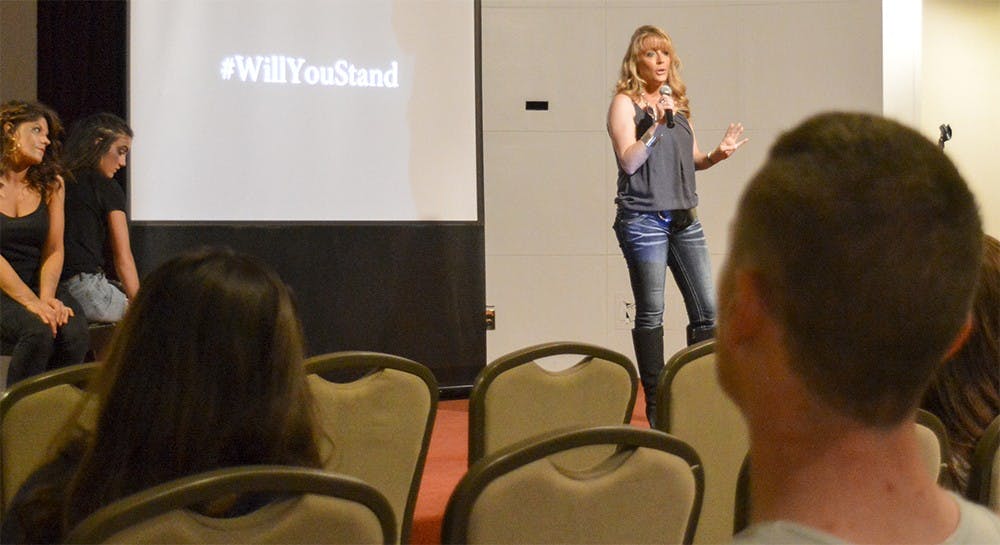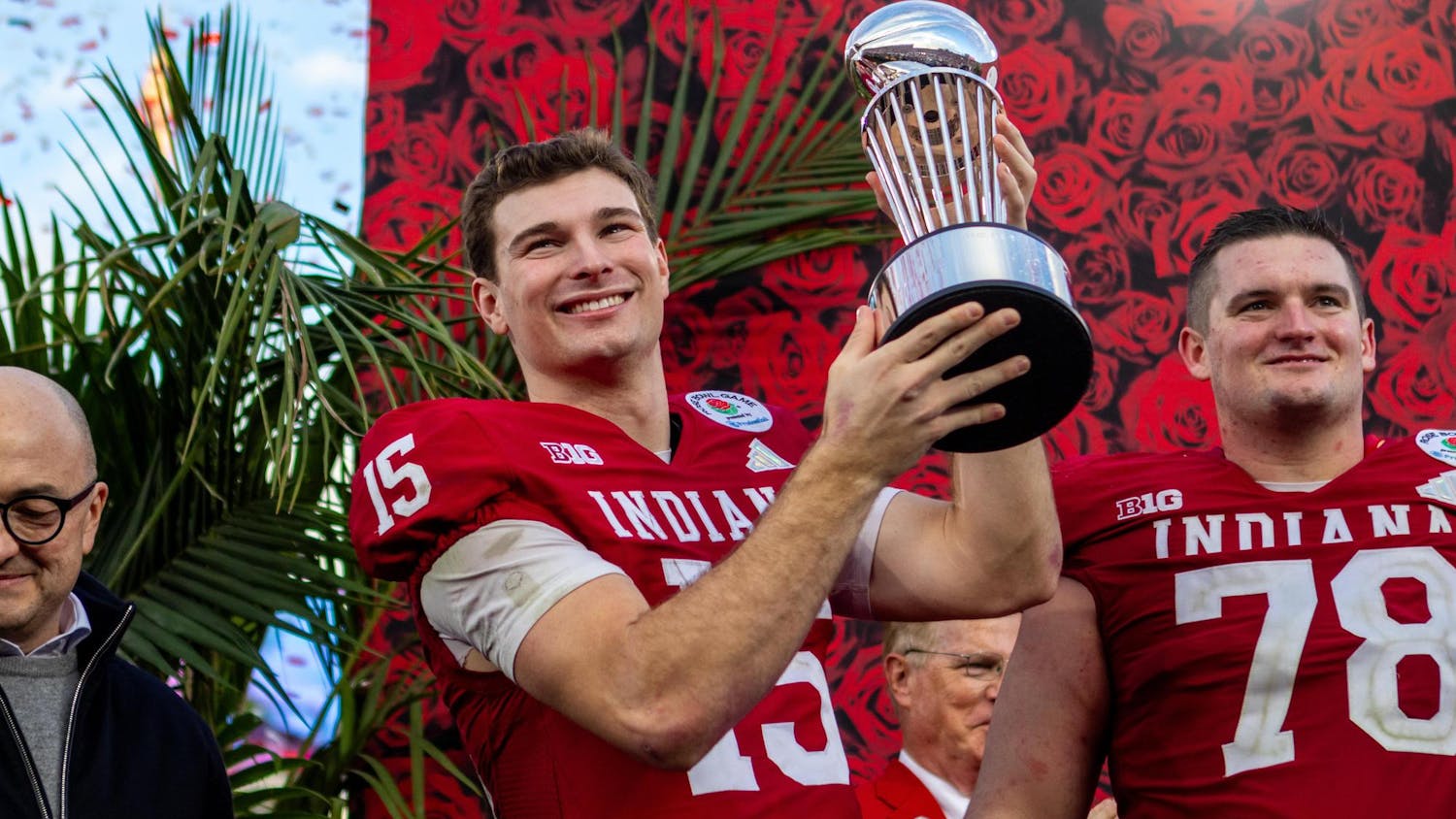Rhonda Patterson, founder of Unslaved, a movement to promote awareness of human trafficking victims, spoke at the Indiana Memorial Union to a crowd of about 100 students March 30.
The next day, Tracy McDaniel, the founder of Restored, a separate but similar organization that provides services to human trafficking victims, called the Indiana Daily Student with concerns that Patterson did not have permission to use the names and stories of victims in her presentation.
McDaniel, who works with the state attorney general’s office, said she recognized the name of a girl from one of her cases. She said Patterson needed a written release to use that name.
“The biggest problem is the sharing of a juvenile’s name, even a first name, without a written release,” McDaniel said of Patterson’s presentation. “You have to be careful of re-exploiting these victims.”
Patterson said a written release was not legally needed because only a first name was used.
“I set up to meet with the victim and her mother, and we talked for two and a half hours,” Patterson said. “She couldn’t come to my presentation herself, but I had permission from the whole family to share her story.”
Most of the organizations involved in bringing this speaker to IU focused on funding the event. There are a lot of costs associated with having an event and bringing an individual to the Union, said Megan Yoder, vice president of programming for Net Impact, a student organization that helped sponsor Patterson’s talk.
Net Impact, Union Board and Kelley Student Government were among the organizations that sponsored Patterson’s talk. But the original plan came from Jordan Austin, a senior who met Patterson at a convention in Indianapolis and invited her to speak at IU.
“Pretty frequently we have students come to us wanting to bring a particular speaker to campus,” said Charlie Schraw, a member of Union Board who was involved in Patterson’s presentation. “We sometimes try to make the event a partnership between ourselves and them and support what they’re trying to do.”
Union Board contributes funds for hotel costs and helps with logistics, such as finding tables and chairs, day-of-event setup and marketing for many of the functions that students ask for help with, Schraw said.
“Vetting and background checks are definitely something we consider important,” Schraw said. “It’s just not necessarily our job. This event would most likely have happened even without our help. We had assumed there was a vetting process before it got to us.”
Kelley Student Government also mainly operates as a funding board, said Jack Pastuovic, a member of the student government body’s funding committee.
“We’re a funding body, so we let the students pitch the events to us, and from their presentation we decide whether or not we want to fund it,” Pastuovic said. “We basically let them tell us why the event has merit. All of the research is done on the student-organization side.”
The research does not always need to be rigorous, Yoder said. In the past, Net Impact has brought executives from Eli Lilly and Company to speak. Most of its speakers have been invited on the basis of professional achievements, Yoder said.
“We do some LinkedIn profile vetting but not for any criminal background because there has been no need to,” Yoder said. “It’s more on professional background, and we just speak to them about their history.”
This process gave only a limited understanding of Patterson’s background, McDaniel said. Austin, Net Impact, Kelley Student Government and Union Board were all unaware of any discrepancies in the event before McDaniel’s complaint.
“If someone is going to come talk to a huge group of students about such a sensitive issue, I would like to know how they were vetted,” McDaniel said.
Austin said she believed Patterson did have a written release to use the stories of individuals in her talk.
The planning, funding and vetting for this event were done entirely by students.
In the case of Patterson’s talk, the Indiana attorney general’s office was concerned with how that could have happened and whether that was common for IU events, McDaniel said. She added the attorney general’s office would be willing to help with sensitive or controversial issues.
“If you’re going to bring in someone you don’t know much about, you should have them officially vetted,” McDaniel said.
Clarification: Tracy McDaniel is not a staff member of or spokesperson for the Indiana Attorney General’s Office.






